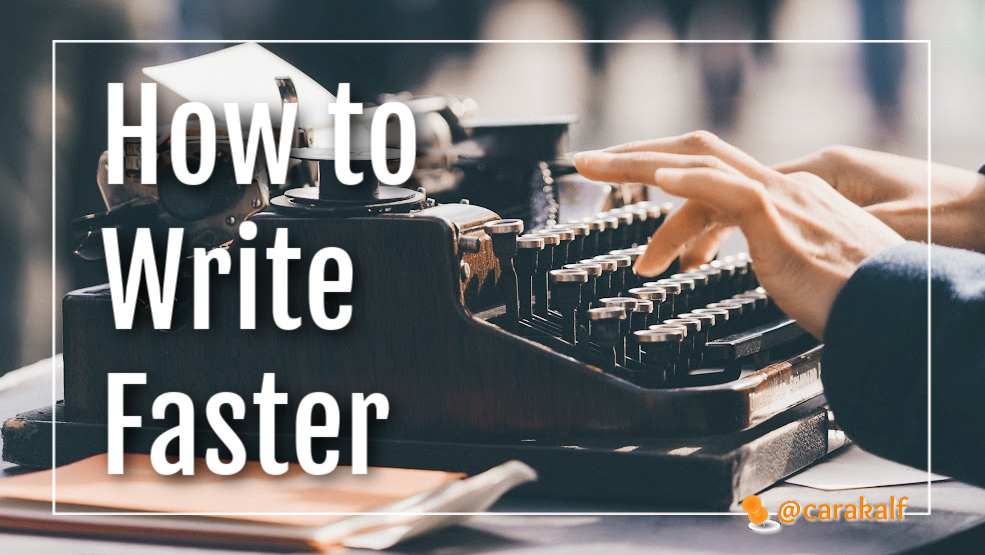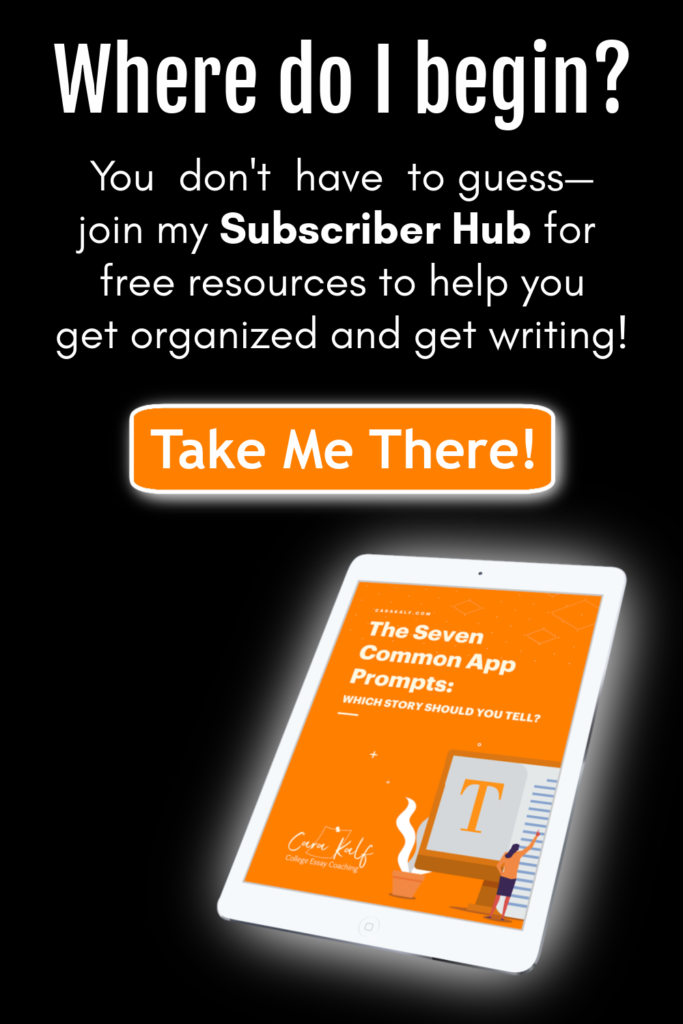Top 5 Tips to Write Faster
Top 5 Tips to Write Faster is the secret you want more than any other, and I’m going to give it to you for free. Everyone wants to write faster, but especially students, and especially students writing application essays for more than a dozen schools.
So how do you write faster? Simple.
- Type faster.
I know, you were hoping for something a bit more profound. But as I regularly remind my students, literally the faster you type, the faster your essay is finished. If you’re still typing by looking at your fingers, you are costing yourself precious time. And I’m not just talking about the time between starting to type and finishing—I’m talking about the time delay that affects your ability to remember what you were about to say. If you’re focusing on your fingers, you’re losing track of your ideas and not keeping up with them. [It’s like trying to have a conversation in a second language—you’re trying to remember what you were about to say while trying to hold on to the word caspa at the same time (#exchangestories).] If you’re thinking about where your fingers are going or what letter you’re pressing at all, that’s brainpower being diverted from your primary task. When you type properly, it’s like an extension of your brain, and you capture your ideas at the speed of thought. (If typing is a lost cause for you, consider setting up one of the many talk-to-type solutions now available. You’re only going to have to write more as years go by!)
- Don’t think so much.
Metacognition, or awareness of your own thinking, might be an important tool for learning and problem-solving, but it’s not an advantage when you’re trying to draft. While you’re trying to tell a story, you’ve got an unwelcome voice, or even gallery of voices, commenting over your shoulder about how stupid your ideas are or how to better phrase them. Needless to say, this slows down the drafting process considerably. The faster you type, the more hope you have of outrunning that crowd, and sometimes you’ll amaze yourself with what comes out when “they” aren’t paying attention.
- Choose a more recent, or more interesting, topic.
If you’ve started a story and it’s coming slowly, is it because you’re having a hard time remembering the details, or because there wasn’t actually that much to the story? If you’ve stalled out at 250 or 300 words, you’re not writing slowly—you’ve stopped. If you’re having a hard time remembering the details, either the story is too old, or it wasn’t important enough to you. If you really feel like it’s an important story to include in your essay, stop trying to wring memories from an empty file and go ask someone older who was there.
If you feel you’ve told the whole story without forgetting anything, and are looking to your conclusion to take up the next 350 words, you have to ask yourself when it’s time to cut your losses and find a stronger topic. Starting again from scratch could actually be faster than trying to craft an essay you’re proud of out of a topic that’s not working. If you’re not willing to be that extreme, try to find a complementary topic that you could add to your story, giving you more directions to go in and more interesting details.
- Be a confident editor—or get a confident editor.
Staring at a sentence for several minutes, or rewriting it multiple times, because you’re not sure if it’s grammatically correct costs precious time. I’ve worked with writers of all ages who found their writing went painfully slowly because they weren’t confident that they were making sense or sounding “smart enough.” Stop second-guessing yourself and find an objective judge of how smooth and correct your writing is.
Remember, though, that not every strong grammarian is a strong editor. Don’t let a well-meaning helper change every moment of voice in your piece. It’s important to find an editor or coach who knows how to teach you to sound like you—and be concise and correct at the same time.
- Start.
Yes, it really is that simple. Your essay isn’t going slowly if it’s not going at all. The thought of trying out different topics, potentially writing ideas you don’t use, feels like a terrible waste of time you don’t have. But what you don’t have time for is staring at your computer screen, waiting for the right words. You don’t have time to wait until inspiration strikes, because until you’re sitting down at the computer, typing everything that comes into your head—it’s not going to. Once you do put in the time, though, inspiration might surprise you where it leads.
(Photo by Thom Milkovic on Unsplash)


